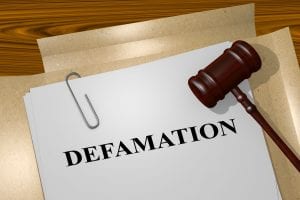After you have taken the steps outlined in the previous articles on the topic of social media business defamation, The Proper Response To Social Media and Business Defamation and Preserving Evidence Can Be “Key Element” in Business Defamation Success, if you still believe that your only recourse is to file suit then you need to seriously consider the ways in which a business defamation lawsuit can backfire.
The primary defense to any lawsuit for defamation is that the statements were not defamation because the statements were true. This means that the defendant will seek any information available that shows that the damaging statements made about your business were true. Subpoenas and deposition notices will likely be issued to your customers, employees, and vendors who will be asked if your business has been involved in the conduct that formed the basis of the statements. If the allegation is that you lied, then everyone you do business with will be asked if you do business honestly. If the allegation is that you deliver products or services late, then everyone will be asked if you are timely in delivering goods or services. Did you pay a vendor late? The overdue invoice may as well have an exhibit sticker on it. Did you get into a partnership dispute with a former business partner? That former partner will be a star witness for the defense. If there is truth to support the statements, then the lawsuit will likely be dismissed and the person who made the statements will be able to crow that they were right and you did the things they said you did further damaging your reputation
Even if the statements were false, and, therefore, truly defamatory, you still need to give serious thought to whether you want to file a business defamation lawsuit as the expense to pursue could outweigh the actual damages sustained. The damages sustained from defamation is almost always damage to reputation. Calculating these damages is not an exact science and will likely require the hiring of an expert, at some additional expense, to analyze the business’ prior earnings, loss of future earnings and business value lost based on the damaged reputation. Even if damages are clearly established, defendants can argue that the damages could have been mitigated, or reduced, by the plaintiff if they had taken certain actions. If the judge agrees, the damages established could be significantly reduced.
The bottom line is if you believe you will need to engage in a legal battle in response to a defamatory statement, you need to know how that decision could backfire. It is also highly recommended that you contact an attorney experienced in handling business defamation matters to assist with evaluating the backlash you could suffer, as well as the expense to pursue.
Aidan Smith is an AV rated trial attorney who has represented individuals and businesses of all sizes in state and federal courts and before arbitration panels throughout the State of Maryland. He practices in the areas of commercial litigation, real estate litigation, general civil litigation, criminal defense and family law. He can be reached at 410-339-6764 or asmith@pklaw.com.












